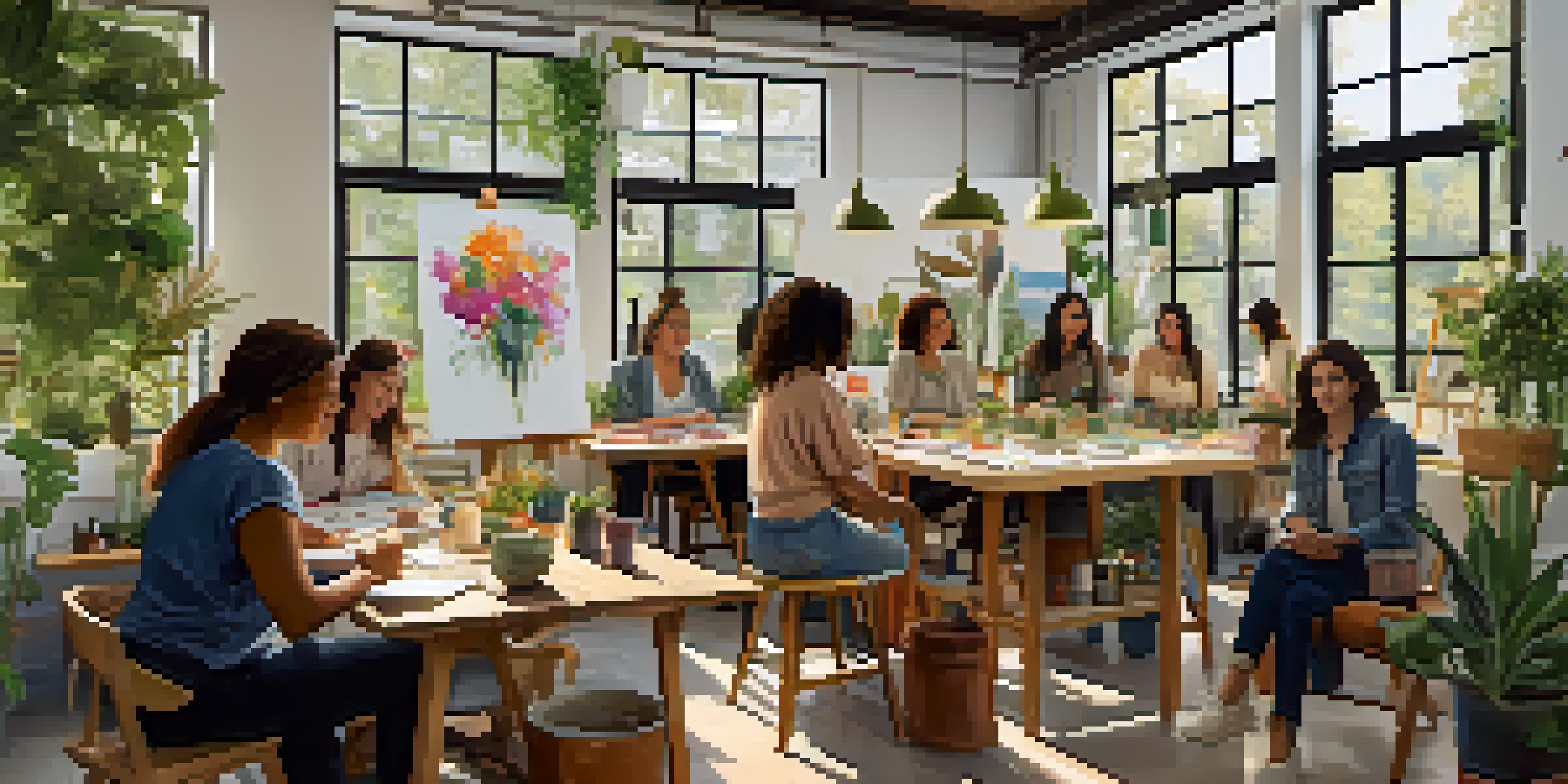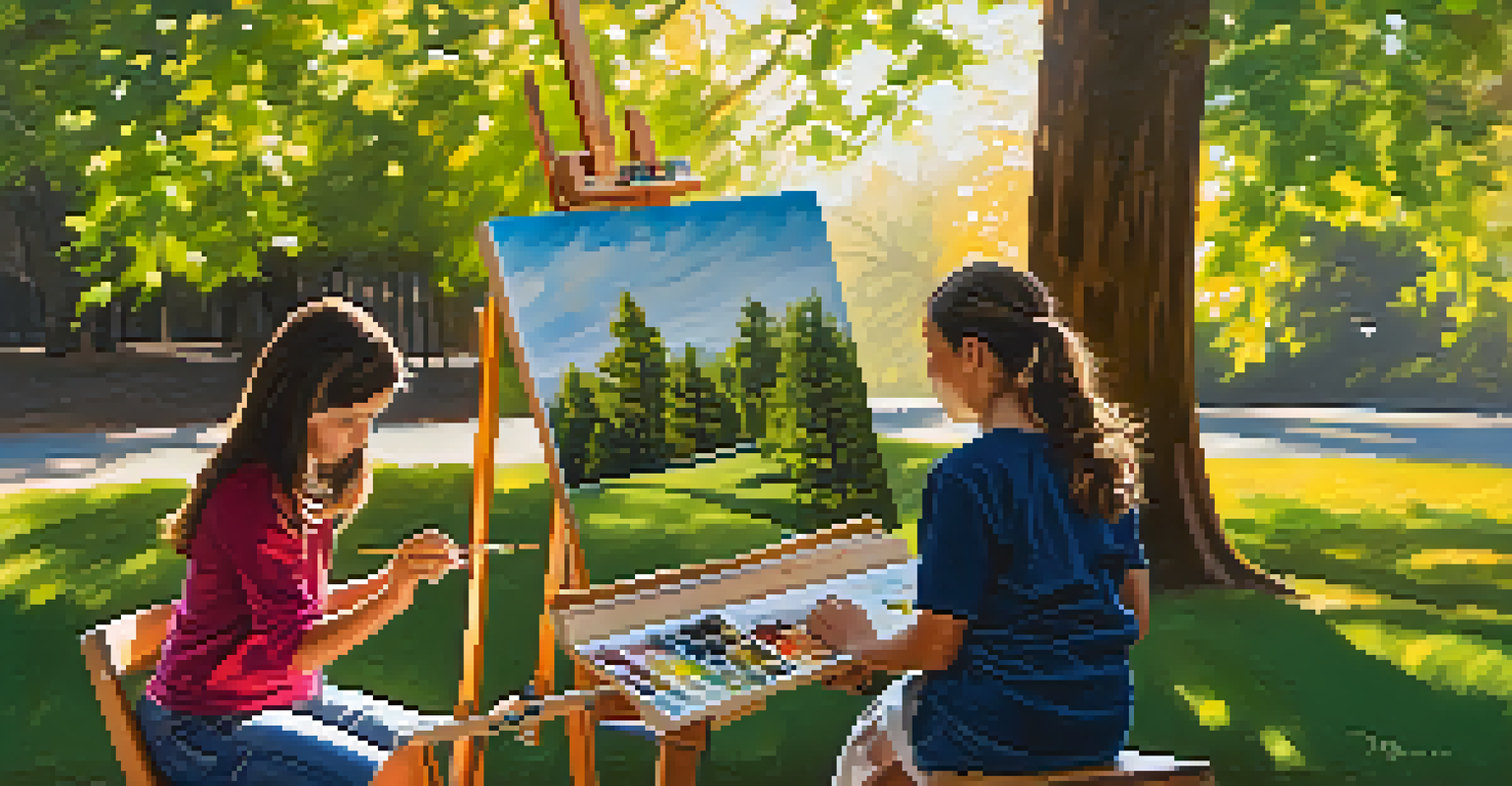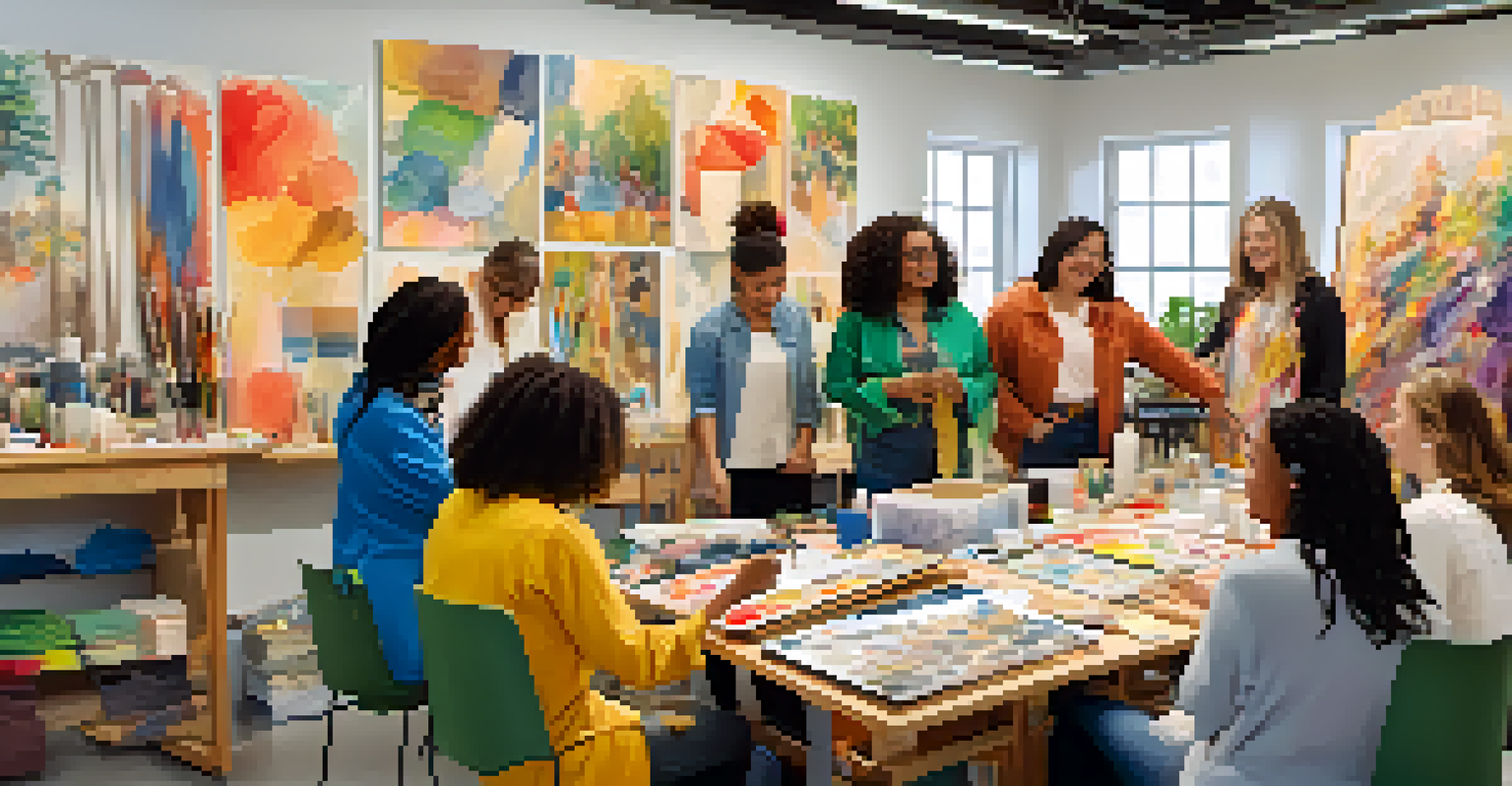Mentorship Programs for Women Artists: Building Futures

Understanding Mentorship for Women Artists
Mentorship has become a vital tool for women artists seeking guidance in their creative journeys. It serves as a bridge, connecting emerging artists with seasoned professionals who share invaluable insights and experiences. This relationship fosters a supportive environment where women can freely express their ideas and navigate the complexities of the art world.
A mentor is someone who allows you to see the hope inside yourself.
For many women artists, mentorship means more than just learning skills; it’s about gaining confidence and finding their unique voice. By sharing stories of success and struggle, mentors encourage mentees to embrace their individuality and push through barriers. This camaraderie is essential in a field where women are often underrepresented.
Moreover, mentorship programs can create networks that extend beyond professional development. They form communities that celebrate collaboration, inspiration, and shared success. In these spaces, women artists can find not only guidance but also friendships that last a lifetime.
The Impact of Mentorship on Artistic Growth
Mentorship plays a crucial role in the artistic growth of women by providing tailored feedback and support. When mentors offer constructive criticism, it helps artists refine their skills and develop a unique style that resonates with their audience. This personalized approach can make all the difference in an artist's journey.

Additionally, participating in mentorship programs often encourages women to take risks in their work. With the backing of a mentor, artists may feel empowered to explore new mediums or tackle challenging themes. This push can lead to breakthroughs that significantly impact their careers and artistic expression.
Mentorship Boosts Women's Confidence
Mentorship helps women artists gain confidence and find their unique voice through supportive guidance.
As artists grow through these programs, they also learn valuable lessons about resilience and adaptability. The challenges they face become stepping stones rather than obstacles, shaping their artistic identity and helping them navigate the competitive art landscape.
Building a Network Through Mentorship
One of the most significant advantages of mentorship programs is the networking opportunities they provide. Women artists can connect with other creatives, industry professionals, and potential collaborators, expanding their reach and influence. These relationships can open doors to exhibitions, grants, and other professional opportunities.
In the world of art, mentorship is not just guidance; it's a lifeline that connects passion with purpose.
A strong network can also serve as a support system during challenging times. When women artists face rejection or criticism, having a community to lean on can be incredibly reassuring. Mentors and peers can offer encouragement, share similar experiences, and provide practical advice to help navigate tough situations.
Moreover, networking through mentorship can lead to collective growth. As women artists uplift one another, they can advocate for broader representation and inclusion in the art world. This ripple effect can create lasting change, benefiting future generations of women artists.
Mentorship Programs: Diverse Approaches
Mentorship programs for women artists come in various forms, each designed to cater to different needs and preferences. Some programs focus on one-on-one mentorship, allowing for deep, personalized interactions. Others offer group settings where artists can learn from multiple perspectives and build collaborative skills.
Workshops and seminars are also popular components of these programs, providing women artists with the chance to enhance their technical skills and gain industry knowledge. These educational events can cover everything from marketing strategies to portfolio development, equipping artists with essential tools for success.
Networking Expands Opportunities
Mentorship programs create valuable networking opportunities that can lead to exhibitions, grants, and collaborations.
Ultimately, the diversity of mentorship approaches ensures that women artists can find a program that resonates with their individual goals and learning styles. This flexibility enhances the overall effectiveness of mentorship, making it a valuable asset in an artist's development.
Success Stories: Women Mentoring Women
Many successful women artists attribute their achievements to the guidance of mentors who believed in them. For instance, renowned painter Amy Sherald has spoken about the impact of her mentor, who encouraged her to embrace her unique style and perspective. Such stories highlight the profound influence mentorship can have on an artist’s career trajectory.
These success stories often inspire other women to seek mentorship and support within the art community. When emerging artists see the tangible benefits of mentorship, they are more likely to pursue similar pathways. This cycle of mentorship fosters a culture of empowerment and collaboration among women in the arts.
Moreover, as these artists achieve recognition, they often return the favor by becoming mentors themselves. This creates a sustainable ecosystem where knowledge, support, and inspiration are continuously passed down, enriching the art world for years to come.
Overcoming Challenges in Mentorship
While mentorship programs provide numerous benefits, challenges can arise that may hinder their effectiveness. One common issue is the mismatch between mentors and mentees, which can lead to unproductive relationships. It’s essential for programs to facilitate thoughtful pairings based on shared interests and goals.
Additionally, time constraints can be a significant barrier for both mentors and mentees. Busy schedules may limit the frequency and depth of their interactions, impacting the overall experience. Programs that offer flexible meeting options or virtual communication can help alleviate this issue.
Diverse Programs Cater to Needs
Various mentorship approaches ensure that women artists can find programs that align with their individual goals and learning styles.
Lastly, addressing the emotional aspects of mentorship is crucial. Some women may struggle with feelings of inadequacy or imposter syndrome, making it difficult to fully engage in the mentorship process. Creating a safe and open environment where these feelings can be discussed is vital for fostering meaningful connections.
Future of Mentorship Programs for Women Artists
Looking ahead, the future of mentorship programs for women artists appears promising. As the art world continues to evolve, there’s a growing recognition of the importance of diverse voices and perspectives. This shift is driving more organizations to develop and expand mentorship initiatives focused on supporting women.
Technology is also playing a role in shaping the future of mentorship. Online platforms can facilitate connections between artists and mentors across geographical boundaries, making mentorship accessible to more women. This digital approach can enhance collaboration and learning opportunities on a global scale.

Ultimately, as more women artists engage in mentorship programs, they will contribute to a richer, more inclusive art community. By investing in one another's futures, they are not only elevating their individual careers but also paving the way for the next generation of women artists.